Related Flashcards
Related Topics
Cards In This Set
| Front | Back |
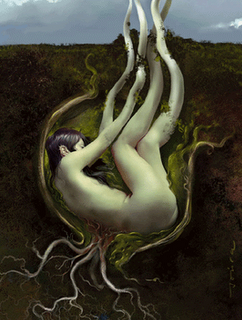 A system of law which is purportedly determined by nature and, thus, universal. Classical advocates of natural law employed reason to analyze human nature, this could serve as a standard by which to critique positive law. They identified a number of right which were inherent in or universally cognizable by virtue of human nature. Characteristics; It is a deductive theory as it begins with basic principles and from these the right coarse of action in a particular situation can be deduced It is deontological as it looks at the intent behind an action and the nature of the act itself, not its outcomes. It is a teleological argument as it believes mankind was sculpted by God, so he may have the means of reaching his end telos. |
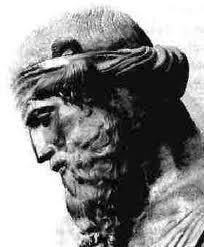 Plato - The Guardians of Plato's Kalipolis had a heightened understanding of moral qualities like justice and moderation. The majority of people can come up with definitions of justice, descriptions of just behavior but these refer to particular times and places. The Guardians can go beyond this and through reason discover the true form (eidos) of justice, all the notions are merely shadows of the real thing. The greatest of forms is the 'form of good' which makes all others intelligible, it is the absolute measure of justice, "the brightest region of being". Upon witnessing the form of good the individual gains wisdom. In Plato's work 'Symposium' good equated with beauty which on coming contact with sustains him from the temptation to pursue wealth and sex. Plato's forms can be interpreted as natural laws, this is further supported by his vision of an ideal society as one "established in accordance with nature" - this is explored in work 'Republic'. |
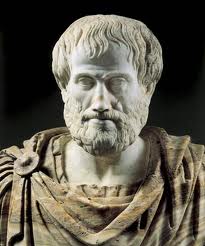 Aristotle In his works Nicomachean Ethics, Aristotle argued that natural law was not always the same as that which was just by law. He observed that while laws may vary from place to place, natural justice is independent and applies to everyone no matter where they live. "The natural is that which everywhere is equally valid, and depends not upon being or not being received...that which is natural is unchangeable, and has the same power everywhere, just as fire burns both here and in Persia" |
The Ancient Stoics
The stoics asserted the existence of a rational (logos) and purposeful order to the universe and the means by which a rational being lived in accordance with this order was the natural law, which spelled out action that accorded with virtue. They considered natural law as a law of right reason. |
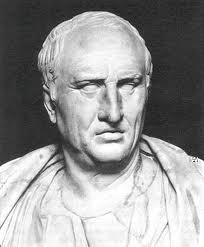 Cicero Cicero wrote in his De Legibus that both justice and law derive their origin from The Gods. "God is the author of this law, its promulgator, and its enforcing judge". For Cicero, natural law obliges us to contribute to the general good of the larger society. The purpose of positive laws is to provide for "the safety of citizens, the preservation of states, and the tranquility and happiness of human life." In this view, "wicked and unjust statutes" are "anything but 'laws,'" because "in the very definition of the term 'law' there inheres the idea and principle of choosing what is just and true." Law, for Cicero, "ought to be a reformer of vice and an incentive to virtue." Cicero expressed the view that "the virtues which we ought to cultivate, always tend to our own happiness, and that the best means of promoting them consists in living with men in that perfect union and charity which are cemented by mutual benefits." Cicero formulated the classical description of natural law depicting it as "universal, unchanging and everlasting" He also alluded to reason and intuition as "we need not look outside ourselves for an expounder or interpreter [of natural law]" |
 St Paul "For when Gentiles, who do not have the law, by nature do the things contained in the law, these, although not having the law, are a law unto themselves, their conscience also bearing witness" |
 Thomas Aquinas St.Thomas Aquinas in his Summa Theologiae, restored Natural Law to its independent state, asserting natural law as the rational creature's participation in the eternal law. Yet, since human reason could not fully comprehend the Eternal law, it needed to be supplemented by revealed Divine law. Meanwhile, Aquinas taught that all human or positive laws were to be judged by their conformity to the natural law. An unjust law is not a law, in the full sense of the word. It retains merely the 'appearance' of law insofar as it is duly constituted and enforced in the same way a just law is, but is itself a 'perversion of law.' At this point, the natural law was not only used to pass judgment on the moral worth of various laws, but also to determine what the law said in the first place. |
Primary Precepts
-Self Preservation and the protection of the innocent -Reproduction -An ordered society -Education of the young -Worship of God or metaphysical beings |
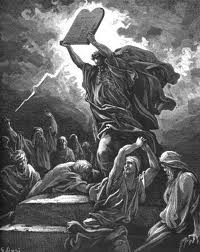 Secondary Precepts These are the absolute deontological principles that are derived from the primary precepts. For examples the teleological principle 'protect and preserve the innocent' creates laws which prohibit abortion. These laws cannot be breached as they are absolute. |
Subordinate and End Cause
The subordinate causes are the steps taken to reach the end cause which once accomplished produces good. Sexual intercourse encompasses both types, the subordinate being it induces pleasures and the end, it is the method of procreation. It one was to remove the purpose of sexual intercourse, procreation, by using contraception it would going against natural law. The end cause assumes a rational mind behind creation. Another example could be determining whether or not a soldier shot well? The subordinate causes would focus on the events surrounding the shooting, posing questions such as 'did he aim well? was the shot effective? did the target die". The end cause, however, ventures into far greater depth, evaluating the soldiers intent - was it justified to fire upon his target? - it is here the true importance lies. |
|
Virtues and Vices
Reason identifies 'natural' and cardinal virtues: prudence, temperance, fortitude and justice. Scriptures reveals the theological virtues: faith, hope and charity. To adhere to natural law, an individual should seek to develop these virtues, this can achieved through practice and repetition as one wishes the virtuous behavior to become habitual. Reason also identifies vices which are to be avoided as they prevent the soul from functioning as God intended. The vices have been identified as the seven deadly sins; lust, gluttony, greed, sloth, acedia, wrath, envy, pride and vainglory. Aquinas believed humans were oriented towards the achievement of perfection and that they could never knowingly pursue evil: "no evil act can be desirable, either by natural appetite or by conscience will'. Human actions that are not pursued in the pursuit of perfection can be explained as the pursuit of an apparent good. It individual mistakes that which holds hedonistic value for 'good' it could lead to regression as vice becomes habitual as oppose to virtue. |
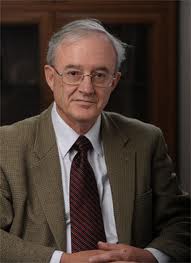 John Finnis Finnis offers a form of natural law which does not presuppose a divine being. He believes that all ration agents set out to preserve or obtain things they perceive to be good. Finnis isolates seven basic goods that are fundamental, underived from other goods and irreducible to other things that are the motivation and goal of action. He also produces nine principles of practical reasonableness which one might call methods of opporation rather than the ends sought. The seven basic goods can be split into two groups; substantive goods, existing prior to the action and reflection goods that dependent on our choices. i) -Human life encompassing health and procreation -Knowledge and esthetic appreciation -Skilled performance ii) -Self integration -Authenticity -Justice and friendship -Religion and Holiness Although I am not going to recite the nine principles of practical reasonableness, I will one as it is also Aquinas' basic principle of moral action - "Pursue good and avoid evil" |
|
Humanity's Telos
The eternal law of divine reason is perceived through revelation, in the form of the world of God and through the use of human reason. Aquinas believed 'to disparage the dictate of reason is equivalent to condemning the command of God'. Reason determines that the ultimate telos of human life is fellowship with God. |
 The Doctrine of Double Effect Claims it is permissible to cause harm as a side effect (or double effect) of bringing about a good result. It was first introduced by Thomas Aquinas, who was grappling with the issue of self-defense, he concluded that killing one's assailant was justified, provided he did not mean to kill him. The actor is motivated by the end cause, self preservation and due to the action of his assailant, he is not breaching upon the other primary precept of preserving the innocent. However, if the man in self defense uses more than the necessary it will be unlawful, whereas, if he repels force with moderation his defense will be lawful. The principle of double effect can also be applied to interior and exterior actions. If I was to commit an unlawful interior act with the intent of securing a great good for the exterior world I would be justified in doing so as the unlawful act is the side effect of a good end. Joseph Magan in his paper 'An historical analysis of the principle of double effect believed a set criteria had to met in order to justify an unlawful act. They were as follows; - The act itself must be indifferent -The good effect has to be intended -The good effect is produced -There is a proportionally grave reason for permitting evil effects For example - If it had come to my attention there was an assassination plot to kill Idi Amin and I allowed it to continue without alerting authorities it would deemed a justified act for through doing so many innocent lives would be saved and I did not personally pull the trigger. |
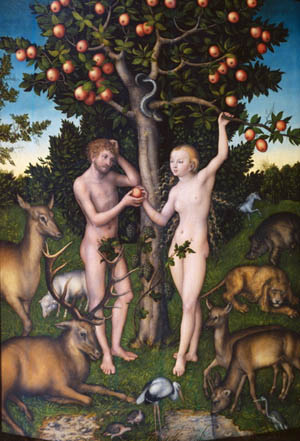 Strengths - - Natural law is an autonomous, rational theory and it is wrong to say that you have to believe in God to make sense of it. Aquinas speaks of “the pattern of life lived according to reason”. You could be a Darwinian atheist and believe in natural law derived by empirical observation, with the primary precept of survival (Aquinas’ preservation of life). Dawkins go so far as to argue for a natural genetic tendency to be altruistic: a lust to be nice. “The theory of Natural Law suggests.. morality is autonomous. It has its own questions, its own methods of answering them, and its own standards of truth…religious considerations are not the point” . Rachels -Humans are capable of using their reason to work out how to live. So we are not slaves to our passions or our genes. Natural Law has a purpose: a flourishing society and a person fulfilled and happy. It is not ultimately about restricting us by rules, but setting us free to fulfil our proper purpose, inherent in our design: to rationally assent to personal growth. If we can agree on our purpose we can agree on what morality is for. Moreover, we don’t have to accept the fact/value division inherent in G.E. Moore or A.J.Ayer’s philosophy. “The natural world is not to be regarded merely as a realm of facts, devoid of value or purpose. Instead, the world is conceived to be a rational order with value and purpose built into its very nature.” Rachels -Again, it’s a misunderstanding to think of Natural Law as inflexible. The primary precepts may be general and unchanging, but as Aquinas himself argued, secondary precepts (the application of primary precepts which create the apparent absolute rules of Natural law) can change depending on circumstances, culture and worldview. The Doctrine of Double Effect is also a way to escape the moral dilemmas which exist when two rules conflict. - |
Weaknesses -
-Aquinas believes in one fixed, shared human nature with certain natural properties eg heterosexual. But evidence suggests there are gay genes and so there is no one natural human nature, but many. This is actually a form of the naturalistic fallacy, the movement from an “is” to an “ought”. “It may be that sex does produce babies, but it does not follow that sex ought or ought not to be engaged in only for that purpose. Facts are one thing, values are another” Rachels- Aquinas believes that we innately (we are born with) have a “tendency to do good and avoid evil”, which he calls the synderesis rule. This is in contrast with Augustine who believes that, due to the Fall, we are born into sin, the sin of Adam, or perhaps the view of psychologists like Freud, that natural selfishness becomes moralised by upbringing and socialisation. This is clearly an optimistic view given human beings propensity to destroy life in war, exploit other sentient creatures for our own ends, misuse sex, indulge in antisocial behaviour, and prefer the X box 360 to education. -Natural Law has been interpreted to ban contraception, because this interferes with the natural primary precepts of reproduction. But a. it’s not clear that sex is exclusively for reproduction, in fact, the function of bonding may be primary and b. the consequence of this policy in Africa has had evil effects of the spread of AIDS and the birth of AIDS infected children who often become orphans living on the streets. |







